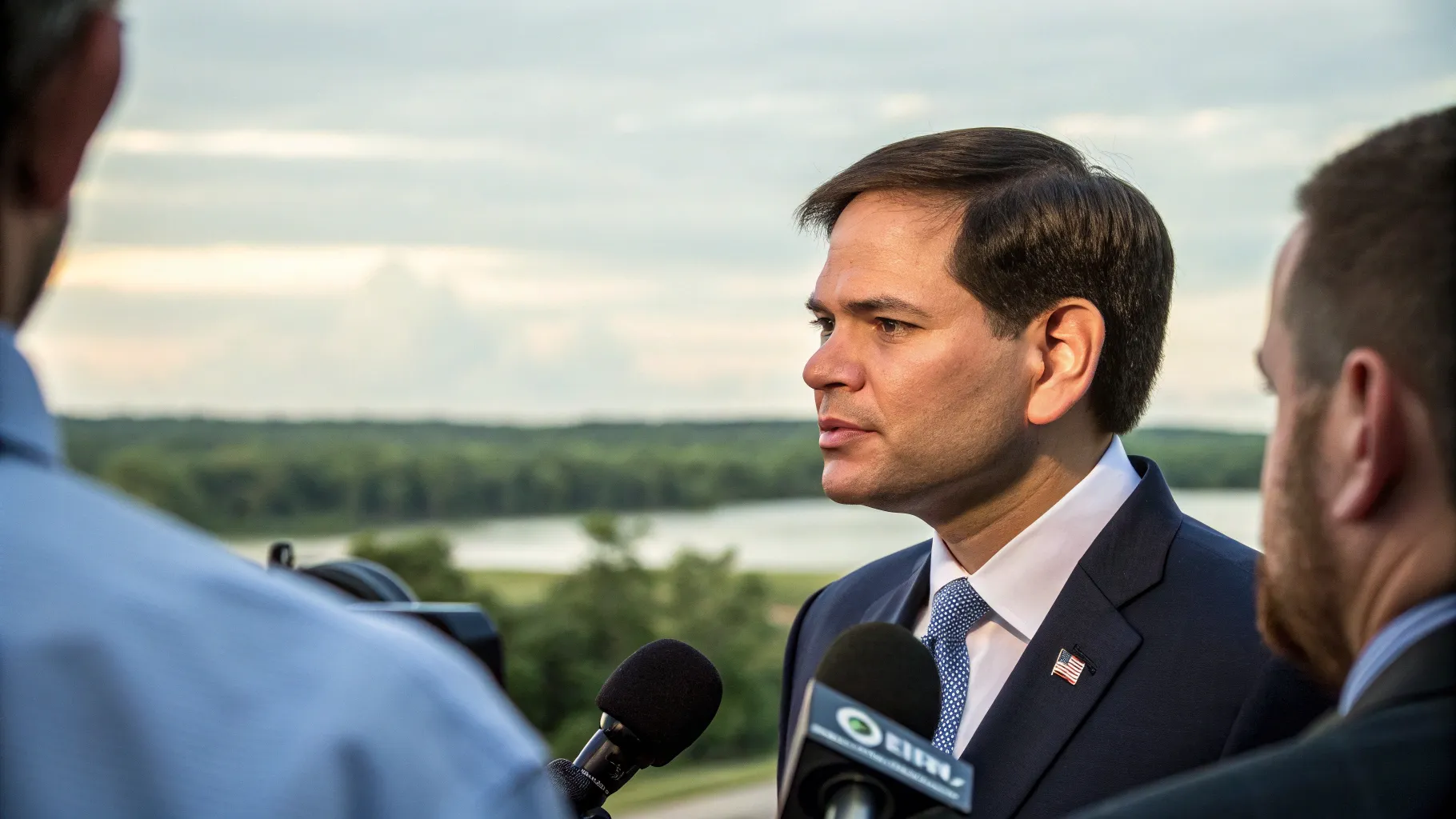The United States cautioned Israel that moving ahead with West Bank annexation could imperil efforts to end the Israel-Hamas war in Gaza, as Secretary of State Marco Rubio signaled a rare public rift over timing and strategy. Speaking to reporters before departing for Israel, Rubio said the Knesset’s recent vote in favor of annexation steps runs counter to the White House’s push for a negotiated deal backed by regional partners.
“They passed a vote in the Knesset, but the president has made clear that’s not something we’d be supportive of right now,” Rubio said, warning that the move could complicate President Donald Trump’s plan for a cease-fire and a broader framework for peace. He added that pushing annexation now risks inflaming tensions with Arab states whose cooperation is central to the current diplomatic push.
Background: A Contentious Move With Regional Stakes
The West Bank has been at the heart of decades of dispute. International bodies, including the United Nations, have long warned that unilateral annexation would violate international law and block a viable path to a two-state solution. Most major foreign capitals have opposed such steps, arguing they would lock in conflict and draw sharp reactions from Arab governments.
The Knesset’s vote signals political pressure inside Israel to formalize control over parts of the territory. That has fueled concern among U.S. officials seeking to align a cease-fire in Gaza with a political track to lower regional tensions.
Last month, President Trump weighed in directly, saying he would not allow annexation to proceed at this stage. The administration’s stance reflects a calculus that de-escalation in Gaza depends on steady coordination with regional actors, including Egypt, Jordan, and Gulf states.
Washington’s Message: Don’t Derail a Peace Track
“We think there’s potential for [it to be even] threatening to the peace deal.”
Rubio’s comments underline a clear message: Israeli domestic votes carry weight, but timing matters. His statement emphasized that Israel remains a democracy where lawmakers will “take these positions,” yet he urged restraint while talks continue.
“They’re a democracy, people are going to have their votes, people are going to take these positions, but at this time we think… it might be counterproductive.”
U.S. officials view annexation as a step that could harden positions in Gaza and make it harder for Arab partners to publicly support a deal. The administration’s aim is to secure a cease-fire, a hostage release, and a mechanism for stabilizing Gaza, while opening space for longer-term political talks.
Regional Reaction and Diplomatic Pressures
Arab governments have signaled strong opposition to annexation for years. Public sentiment in these countries makes cooperation with Israel harder when such moves are on the table. Israel’s domestic politics, however, can pull leaders in the opposite direction, especially amid security threats and coalition pressures.
The White House is working to keep those tracks from colliding. By pressing pause on annexation, U.S. officials hope to protect fragile alignment with regional partners on aid, reconstruction access, and border arrangements tied to a Gaza cease-fire.
- Arab states seek de-escalation before deeper ties with Israel.
- European allies warn annexation would isolate Israel diplomatically.
- U.S. wants sequencing: cease-fire, humanitarian relief, political track.
What the Knesset Vote Signals
The Knesset vote is not an annexation order by itself, but it channels a push from some Israeli lawmakers to formalize control in the West Bank. That signal alone can shift diplomatic calculations. It pressures the U.S. to clarify red lines and could prompt responses from Arab capitals and the European Union.
Rubio’s remarks suggest Washington will tie future engagement to steps that keep the Gaza negotiations viable. That includes discouraging moves that change facts on the ground while talks are active.
What Comes Next
Rubio’s trip is expected to focus on preventing actions that could shut down a cease-fire track and on securing regional backing for a staged plan. The administration believes a pause in fighting and a framework for Gaza’s governance can only hold if broader political issues are handled through negotiations, not unilateral steps.
The next weeks will test whether Israel’s leadership defers annexation moves in favor of the U.S.-led plan, and whether Arab partners sustain support for a deal that reduces violence and opens channels for reconstruction. Any shift by the Knesset could quickly ripple through those efforts.
For now, Washington’s position is firm: keep annexation off the table while diplomacy seeks results in Gaza. The outcome will shape regional ties, Israel’s international standing, and the chances of a political horizon after the guns fall silent.







